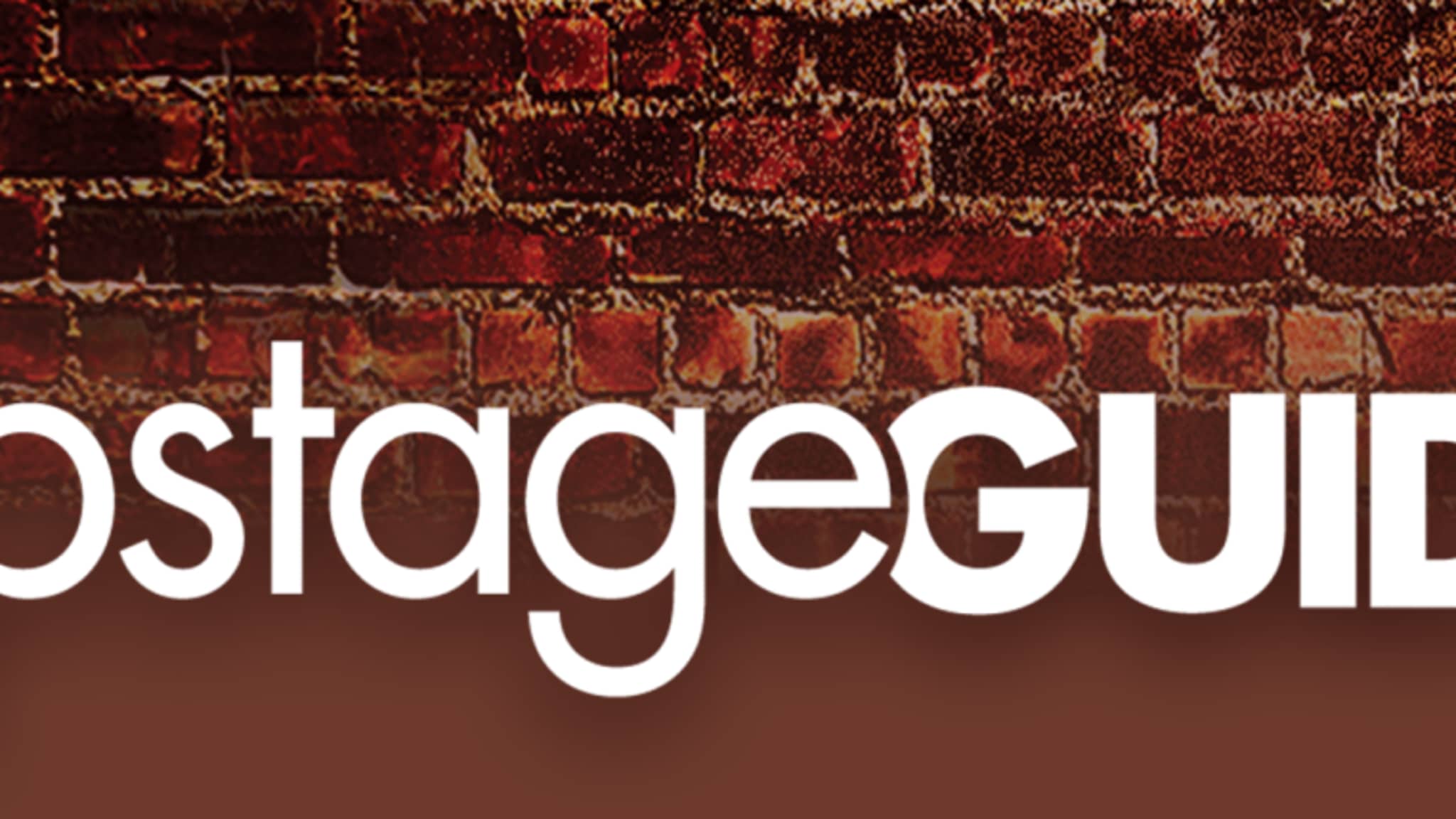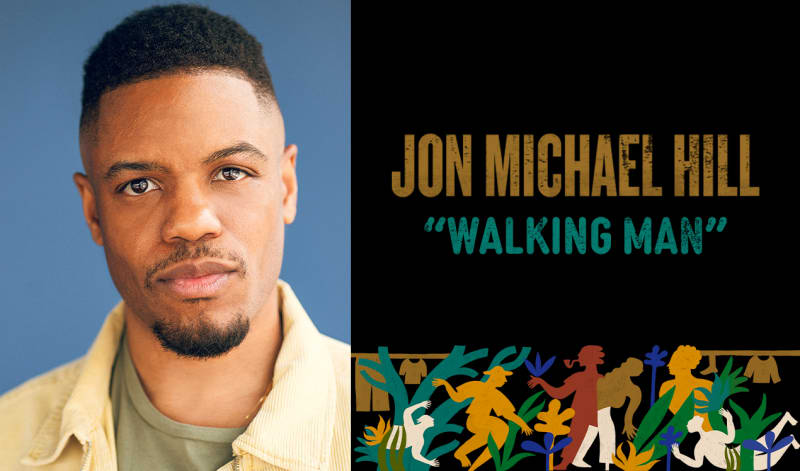Teaching Artist Leah Reddy spoke with director Barry Edelstein about his work on The Wanderers.
Leah Reddy: What is your theatre origin story?
Barry Edelstein: I grew up in suburban New Jersey, in Bergen County, a few miles across the George Washington Bridge, and my folks loved Broadway. A couple times a year they'd pile the family in the car, and we'd go into New York City and see a matinée on a weekend, usually a musical. That's how I got introduced.
There's this saying I'm very fond of, which is, “Nobody ever goes to the theatre for the first time, they're only ever taken to the theatre for the first time.” A teacher takes you, or a grandparent takes you, or a neighbor takes you. In my case, my parents took me, and I was very, very fortunate. I have vivid memories — this would've been in the early 1970s — of the sights and sounds and smells of these magnificently beautiful Broadway theatres. I got the bug. It was much later in my life that I learned that there was a whole other theatre, an art theatre, avant-garde theatre, Off-Broadway theatre. As a kid, Broadway was my first exposure.
LR: Were there any particularly influential teachers or educational experiences that guided you to where you are today?
BE: My whole career is because of teachers. I'm hugely indebted to teachers. I had great teachers when I was in high school. I went to public school in Bergen County at a time when there were much more robust arts budgets than there are now. In a totally undistinguished public school system in suburban New Jersey, there were New York theatre makers whose day job was to come out and teach kids. I was exposed to the idea of professional theatre from a pretty young age by really charismatic teachers.
Two wonderful men — both sadly subsequently lost to AIDS — two amazing men, were mentors of mine: Thomas Ratzin and Arnold Hruska. They were the first ones who made me really understand that this is a profession. Then I went to college and I was acting, as most people I think do, they start out as actors before they understand that there are other ways to be involved in the theatre. I had a teacher, Vincent Murphy, who said, "You know, you think like a director, you should explore directing." And that changed the course of my life. So early encounters with teachers have been deeply instrumental and deeply central to my career trajectory, to my sense of self.
LR: What made you want to direct The Wanderers, knowing that you balance your work as the Erna Finci Viterbi Artistic Director at The Old Globe with your directing practice. Why this play?
BE: I came across Anna Ziegler's writing in the context of programming seasons at The Old Globe, and in the context of our new work program, we commission and develop and work on new writing. I immediately recognized the voice in her writing, one that I loved, and was moved by, and impressed by, and touched by. She has a voice that I recognized was doing something a little different than many writers I was reading in the American theatre, in terms of a kind of literary bent, a kind of sense of the poetry of language. We presented one of her plays and then commissioned her to write another play.
The Wanderers started out as two plays. Anna was very interested in the idea of arranged marriage, and she was writing a play set in the world of Ultra-Orthodox Hasidic Jews where marriages are arranged by families or at least set up by families, and then she was writing a second play about the literary world of North Brooklyn, that had to do with a novelist having a relationship with a movie star while his marriage was under duress and all this kind of complicated stuff. We were developing these plays with Anna, and then, I can't remember exactly how this happened, but somebody, very likely Anna, said, "I think this is actually one play." It was this eureka moment where she, under pressure to deliver a commission to The Old Globe at deadline, figured out how to meld these two plays together.
And I read it and I was captivated by it. In my career I've done an enormous amount of work in Shakespeare, and I've done a fair amount of work in new writing that's about the Jewish faith or about the Jewish culture, my own culture, my own faith. I've really been blessed to be able to explore that faith and culture in my artistic work. So when I read this play, I thought, “Wow, this really has everything that I love.” A specific and highly literary, beautiful sense of the English language and how it works on stage, and this curiosity about a corner of the Jewish world that I really didn't know a whole lot about. So I asked Anna if I could direct the premiere at the The Globe. We spent about a year developing it, a couple of workshops, a couple of readings, and then we premiered it in April 2018.
LR: For this second production in New York, has anything changed about how you are thinking about the piece?
BE: It's almost five years later. We had been talking with the Roundabout about doing it in 2020, which would've been just barely two years later. Then the pandemic, the virus got in the way. So here we are, finally, and I want to say on the record how grateful I am to the Roundabout for sticking with it all this time. It's wonderful. That's a commitment that not a lot of other theatres would've had the wherewithal or the will to make.
Five years later, post-pandemic, I feel like a different human being. My children are five years older than they were the last time I worked on it. I've got five more years of a marriage in my life than I had when I worked on it. Five more years of theatre production in my life than I had when I worked on it. There's that whole scientific thing, every seven years, your body completely renews itself. Every single cell in your body is new every seven years. I'm basically a different person now than I was the first time I did it.
I'm coming to it as a new play, and thinking about it in a very, very different way. I'm interested to get into rehearsal and discover whether I think the center of the play is in a different place. I suspect I will feel that. When I was working on it the last time, the marriage of Abe and Sophie felt to me extremely central to the play and the issues that they're dealing with about being a two-career couple, a couple in which both are artists and creative human beings, juggling the upbringing of two young kids. I can certainly relate to that, and it felt very personal to me there. My life in that regard is in a very different place. My kids are older. I'm curious to find out whether the center of the piece is going to migrate somewhere else. And I bet it will.
I can also say that at The Globe, our smaller theatre, 250-seat theatre, is in the round. And the Laura Pels is not in the round. Just making the show into a proscenium piece, an end stage piece, that's a completely different thing. Only one of the actors from San Diego is in the show in New York. It’s going to have totally new people, new energies. I’ve had the opportunity a few times in my career to revisit plays that I’ve done before, and every single time I’ve found it a completely different experience. Obviously, the words are the same, the play ends the same way, but it's a welcome opportunity to throw all your previous assumptions away and start again.
LR: How are you approaching representing the online relationships in this play in a theatrical way?
BE: The first time we did the show, we explored all that in all kinds of ways, with phones and laptops, and very quickly we discovered: just play them as scenes. Just play them as scenes. Tell the audience at the beginning of the play, hey, they're really in cyberspace now, but then just have the people relate to each other as if they're present, together. And that worked. We had some scenic, lighting, and sound conventions that told the audience these scenes take place in cyberspace. And we'll do that at Roundabout too. But basically, we decided the way that it felt the most human, most accessible, and most exciting was to just let the two actors play as if they were in real space together.
LR: What advice do you have for folks who want to become directors?
BE: My standard advice that I give to people is to be as specific as they can about the vision of the work they want to do. The American theatre is a vast place. It runs a gamut from Broadway musicals, with people tap dancing and singing, to storefront theatres in the Bronx that are doing highly experimental work. To say, “I want to work in the theatre,” is almost a meaningless comment. One has to decide, well, which part of the theatre excites and entices me? In my case, I decided very early in my life that I wanted to make Shakespeare in the American theatre. I had a conviction in my imagination and in my heart that there was authentically something called American Shakespeare, that this was a real thing that we could talk about and define and touch and make, and that's what I wanted to do.
I had a relentless tunnel-vision focus on that. And what has happened over 30 years is that it has branched out to all kinds of things. I direct musicals and I direct new plays, and I produce material, and I write, and I make a podcast, and I do all these kinds of other things. But the thread that has carried me through those decades of work is this singular, relentless, and unshakable conviction that there is something called American Shakespeare and that I want to make it.
That's the advice that I give to others, purely from my own solipsistic perspective. It worked for me, to really narrow it down to a highly specific thing. And then from there, branches sprouted. The advice I give people is to be relentlessly specific with that vision of what you want that to be and it will lead you through the endless, vast, rich world of the American theatre in a wonderful and potent way.



